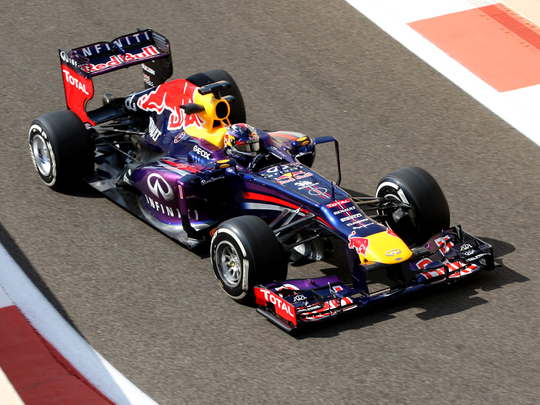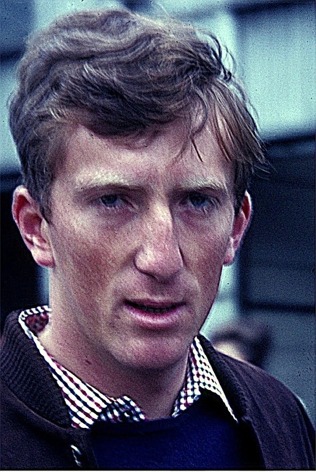
Race details
Race name Formula 1 Grosser Preis Von Österreich 2015 Round 8
Circuit Red Bull Ring, Spielberg First race 1970 Grands Prix held 26
Laps 71 Race distance 307.02km Circuit length 4.326km Lap record 1:08.337 by Michael Schumacher (Ferrari) 2003
Chance of safety car Medium
Most wins by driver Alain Prost x3 Most wins by team McLaren x6
2014 result
1st Nico Rosberg (GER), Mercedes - 1:27:54.976
2nd Lewis Hamilton (GB), Mercedes +1.932s
3rd Valetteri Bottas (FIN), Williams +8.172s
2015 schedule
June 19 – Friday practice 1 12pm to 1.30pm Friday practice 2 4pm to 5.30pm
June 20 – Saturday practice 3 1pm to 2pm Saturday qualifying 4pm to 5pm
June 21 – Sunday race 4pm to 6pm
All times UAE
TV schedule All sessions to be broadcast live on BeIN Sports HD6. Check here for any changes to the schedule.
Best places to watch
Click here to find out where the best bars to watch the Grand Prix live are.
Phone ahead to check, Gulf News is not responsible for any changes
Facts and forecasts
The atmosphere
The Red Bull Ring is set in a natural basin and therefore offers one of the best views of any race track on Grand Prix calendar. Set in the mountainous Styrian region in south-east Austria, the circuit is by far the most scenic, boasting views of forest and mountains. The crowds will be wearing Red Bull colours for obvious reasons, but expect lots of support for the German drivers too.
Weather forecast
Both Friday and Saturday are forecast to be partly cloudy with a 20 per cent chance of rain. Sunday, however, is likely to see showers, with a 50 per cent chance of rain.
Because of the Red Bull Ring’s location in the mountains, rain is a constant threat. Things can change very quickly. However thanks to the camber of the circuit, and the fact that the circuit sits in a natural amphitheatre, surface water isn’t generally an issue – it drains quickly.
Stay up to date with the latest weather here.
A bit of history
The Austrian Grand Prix began life on an abandoned airfield at Zeltweg. Cones were arranged to form a rather bland “L” shape circuit in 1958. Bland it may have been on paper, but the circuit proved instantly popular and things very quickly began to catch on.
The Austrian authorities desired hosting an F1 Grand Prix, and such ambition led to a flurry of talented drivers entering the sport professionally. Such interest convinced the Austrian authorities that a Grand Prix was worth investing in.
A purpose built circuit was constructed in Spielberg – the Osterreichring – and hosted its first Grand Prix in 1970. The race was won by Belgian Jacky Ickx.
Osterreichring would hold the Austrian Grand Prix every year until 1987, when the circuit found itself increasingly far behind contemporary standards. The narrow pit straight in particular was a concern, with the 1987 race requiring two restarts as a result of collisions. The track was also deemed unsuitable for the speeds of the turbo cars of the era, which were capable of producing over 1200bhp.
The race returned to the F1 calendar in 1997 after Austrian telecommunications company, A1, funded a complete rebuild of the circuit. While the principle shape of the track remained, the fast sweeping corners were blunted down into tighter hairpins, and the straights greatly reduced in length. Despite some saying that the challenge of the original circuit had been lost, the now-called the A1 Ring still received positive feedback from the drivers.
But the race would disappear again after 2003, and it would be July 2014 before Austria would return. Red Bull owner Dietrich Mateschitz - an Austrian national - bought the circuit in 2013 and invested in further improvements.
The circuit was also the scene of the infamous “Team Orders” row in 2002 when Ferrari driver Rubens Barrichello, who was leading on merit, was ordered to move over and let teammate Michael Schumacher by to win so as to cement the German’s championship. It was a debacle and was met with a huge backlash.
The 2002 race still makes for painful viewing after Ferrari team orders fabricated the result
Best overtaking spots
Austria is not the greatest circuit for overtaking, mainly due to the relative shortness of its straights. Turn 2, Remus, is likely going to be the source of much action, as is Turn 3, Schlossgold – which follows the first of two DRS zones.
The second DRS zone on the main straight will also offer a platform for some fairly textbook overtakes into Turn 1, Castrol Edge.
Writer’s winner
This is Red Bull’s home race – by a measure of ownership at least – but hopes of a win in front of the home crowd may be beyond reach this year. Mercedes continues its dominance, and before we get accused of favouring Lewis Hamilton – we don’t, by the way – we’re going to predict a Nico Rosberg win.
Watch out for the Ferraris, though.
Austrian legends
Jochen Rindt
Race starts 60 Wins 6 Titles 1 Poles 10 Fastest laps 3 Career points 107
 Leading the rise of Austrian participation in Formula 1 in the 1960s was Mainz-born Jochen Rindt. Rindt very quickly became one of Formula 1’s top drivers after making his debut with Brabham in 1964. In 1966, by this time driving for Cooper, he notched up three podium finishes and finished third in the championship.
Leading the rise of Austrian participation in Formula 1 in the 1960s was Mainz-born Jochen Rindt. Rindt very quickly became one of Formula 1’s top drivers after making his debut with Brabham in 1964. In 1966, by this time driving for Cooper, he notched up three podium finishes and finished third in the championship.
The following two years were blighted by unreliability, but his speed and talent was never in question. During the first ever Austrian Grand Prix at Spielberg in 1970, Rindt retired on lap 21 with a blown engine.
By this stage of the season, Rindt had won five of the season’s 10 races. But tragically, a week after that first Austrian race, Rindt was killed during practice for the Italian Grand Prix. Remarkably, though, his rivals – Jacky Ickx and Clay Regazzoni – failed to win sufficient points and thus Rindt was crowned champion posthumously – the only time such a thing has happened.
Niki Lauda
Race starts 177 Wins 25 Titles 3 Poles 24 Fastest laps 24 Career points 420.5
.jpg/640px-Lauda_at_1978_Dutch_Grand_Prix_(2).jpg) It wasn’t long after the death of one national hero that another would ascend to the fore. Niki Lauda remains one of Formula 1’s greatest ever drivers. A three-time World Champion, Lauda risked his entire family estate to chase the Formula 1 dream.
It wasn’t long after the death of one national hero that another would ascend to the fore. Niki Lauda remains one of Formula 1’s greatest ever drivers. A three-time World Champion, Lauda risked his entire family estate to chase the Formula 1 dream.
He made a slow start in Formula 1, before funding got him a drive with BRM in 1973. It wasn’t a good year, with most races ending in retirement, bar a fifth place finish in Belgium.
The following year saw him move to Ferrari, where his ruthless dedication to technical detail saw him finish second on his debut with the Maranello team in Argentina. His first of two wins came in Spain that year on his way to fourth in the championship.
He would win the 1975 World Championship with five race wins, as well as in 1977 with three race wins.
However he is most well-known for his 1976 rivalry with British playboy and eventual champion, James Hunt. Lauda had the upper hand at the start of the year, with Hunt just about keeping up with the pace. But at the infamous Nurburgring in Germany that year, a suspension failure in wet weahter saw him crash heavily into the barriers. The initial impact started a fire, but the car exploded after Brett Lunger collided with the wreckage. Seemingly dead, fellow drivers stopped to pull him from the car, many thought it was too late.
Lauda lost most of his right ear, his eyelids, eyebrows and hair in the fire, yet remarkably was back racing again six weeks later. The 1976 season was adapted into the 2013 film Rush.
After a brief sabbatical from the sport in 1980 and 1981, he returned, winning the title for a third and final time in 1984.
Today he is non-executive chairman of the Mercedes F1 team.
Gerhard Berger
Race starts 210 Wins 10 Titles 0 Poles 12 Fastest laps 21 Career points 385
 In a career that spanned 14 years, Gerhard Berger was one of the sports most consistent front-runners. Being teammate to some of the sport’s biggest players, most notably Ayrton Senna, meant that Berger would seldom have the opportunity to challenge for world titles consistently.
In a career that spanned 14 years, Gerhard Berger was one of the sports most consistent front-runners. Being teammate to some of the sport’s biggest players, most notably Ayrton Senna, meant that Berger would seldom have the opportunity to challenge for world titles consistently.
But despite the absence of titles, Berger was one of the quickest drivers in F1 during the early nineties, having driven for McLaren, Ferrari, and Benetton – three of the sport’s biggest teams during the era.
He scored his first win in 1986, winning for Benetton at the Mexican Grand Prix. Berger took advantage of his more durable Pirelli tyres and beat 1985 – and 1986 champion it would turn out – Alain Prost by 25 seconds.
The following year he moved to Ferrari where he would score a further four wins between 1987 and 1989, before moving to rivals McLaren, joining Ayrton Senna and replacing Alain Prost. He would score three wins with the Woking outfit before returning to Ferrari for 1993, 1994, and 1995, before returning the Benetton again for 1996 and 1997 before he retired.
Berger was an active driving force for safety in the sport, and even threatened to quit racing in the wake of Senna’s death in 1994.
Stat attack
Austrain Grand Prix winner's Hall of Fame
| Year | Driver | Team | Circuit name |
|---|---|---|---|
| 2014 | Nico Rosberg | Mercedes | Red Bull Ring |
| 2003 | Michael Schumacher | Ferrari | A1-Ring |
| 2002 | Michael Schumacher | Ferrari | A1-Ring |
| 2001 | David Coulthard | McLaren-Mercedes | A1-Ring |
| 2000 | Mika Häkkinen | McLaren-Mercedes | A1-Ring |
| 1999 | Eddie Irvine | Ferrari | A1-Ring |
| 1998 | Mika Häkkinen | McLaren-Mercedes | A1-Ring |
| 1997 | Jacques Villeneuve | Williams-Renault | A1-Ring |
| 1987 | Nigel Mansell | Williams-Honda | Österreichring |
| 1986 | Alain Prost | McLaren-TAG | Österreichring |
| 1985 | Alain Prost | McLaren-TAG | Österreichring |
| 1984 | Niki Lauda | McLaren-TAG | Österreichring |
| 1983 | Alain Prost | Renault | Österreichring |
| 1982 | Elio de Angelis | Lotus-Ford | Österreichring |
| 1981 | Jacques Laffite | Ligier-Matra | Österreichring |
| 1980 | Jean-Pierre Jabouille | Renault | Österreichring |
| 1979 | Alan Jones | Williams-Ford | Österreichring |
| 1978 | Ronnie Peterson | Lotus-Ford | Österreichring |
| 1977 | Alan Jones | Shadow-Ford | Österreichring |
| 1976 | John Watson | Penske-Ford | Österreichring |
| 1975 | Vittorio Brambilla | March-Ford | Österreichring |
| 1974 | Carlos Reutemann | Brabham-Ford | Österreichring |
| 1973 | Ronnie Peterson | Lotus-Ford | Österreichring |
| 1972 | Emerson Fittipaldi | Lotus-Ford | Österreichring |
| 1971 | Jo Siffert | BRM | Österreichring |
| 1970 | Jacky Ickx | Ferrari | Österreichring |











